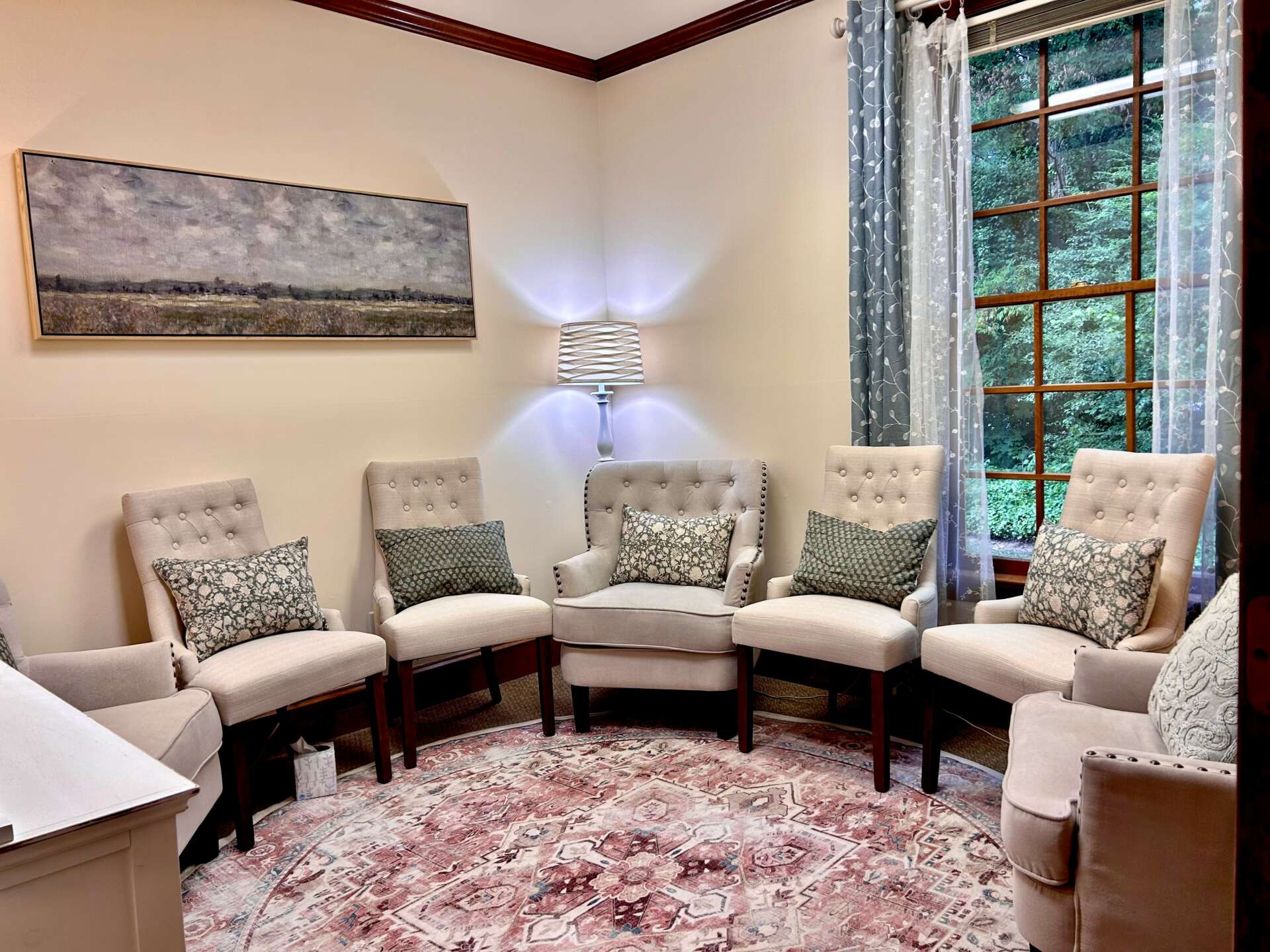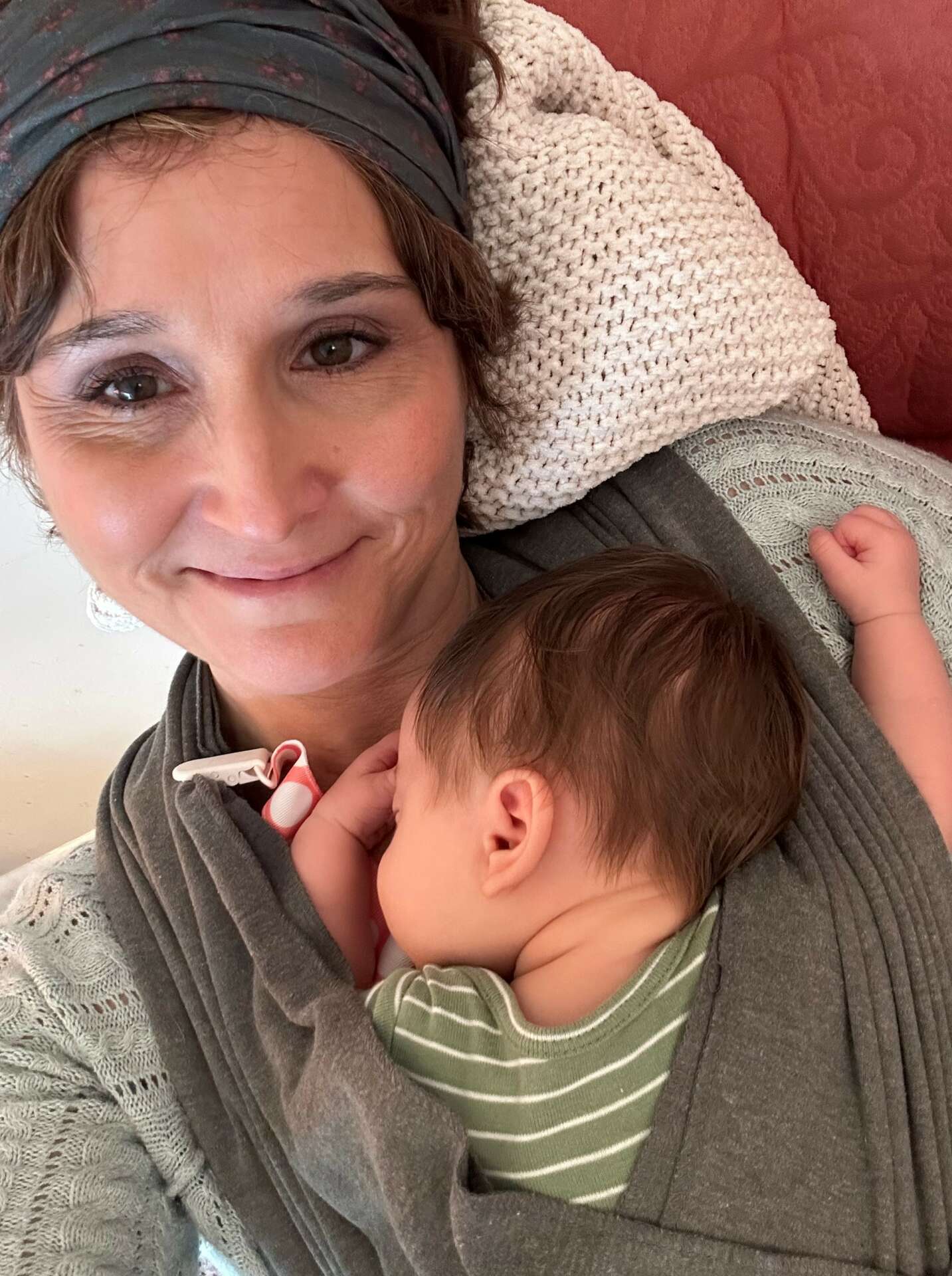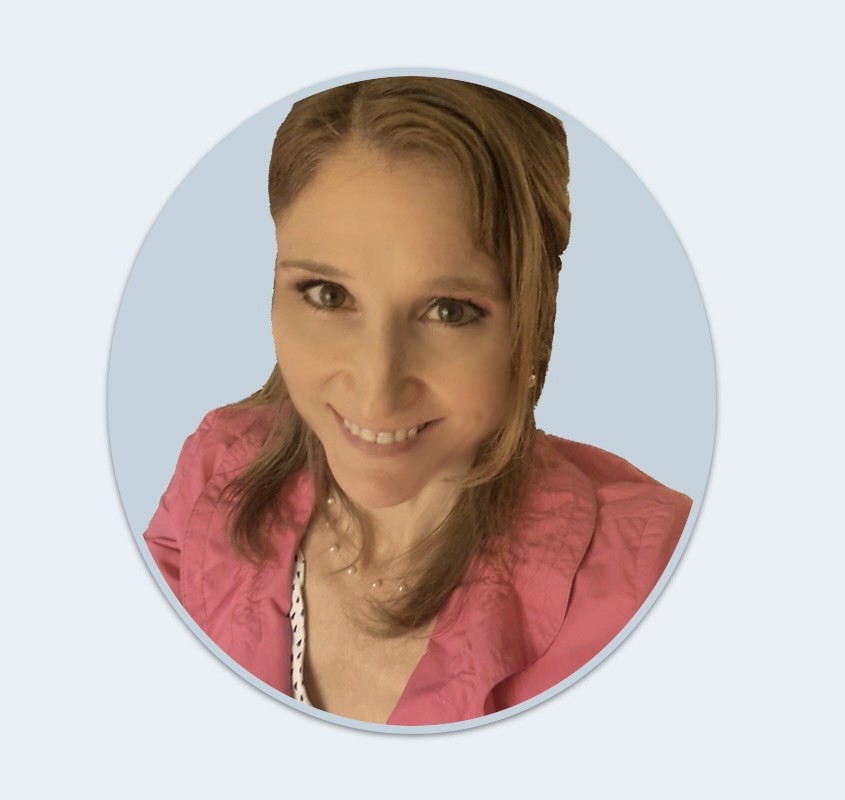Alright – so today we’ve got the honor of introducing you to Joy Elliot. We think you’ll enjoy our conversation, we’ve shared it below.
Hi Joy, thanks for joining us today. What was your school or training experience like? Share an anecdote or two that you feel illustrate important aspects or the overall nature of your schooling/training experience.
Thank you for the opportunity to share a little about my journey to become a trauma therapist. For as long as I can remember I have wanted to help others recover from their trauma. My experience of childhood sex trafficking stirred in me a desire to become a therapist. After graduating college with a bachelor’s in counseling, I entered graduate school eager to begin learning the skills I would need to walk with survivors through healing. During my first semester I experienced a long and drawn out miscarriage which left me physically and emotionally overwhelmed. My next two pregnancies resulted in miscarriage as well. Between medical complications and a lot of confusing emotions, I decided to withdraw from school to focus on my physical and mental health.
Before long I gave birth to a healthy son, followed by several more children and another pregnancy loss, this time a stillbirth. As I settled into motherhood I decided that, rather than returning to school, I would focus my attention on raising children. After attending births of several friends and neighbors I felt inspired to became a doula and to open my own doula agency. Despite the grueling schedule of on-call life, birth work allowed me to be home with my children most of the time. It also gave me the opportunity to serve others.
As the years passed my marriage became increasingly difficult. After enduring twenty years of alcoholism, adultery, and abuse I left my husband, taking with me my five children. I became a struggling single mom. Suddenly I had to figure out how to feed them and keep a roof over our heads. I loved my job but unfortunately, it didn’t consistently provide enough income to cover my growing expenses. Finishing my training to be a therapist would allow me to continue helping others as well as provide a sustainable source of income for my family.
At the same time I was searching for my own trauma therapist. I discovered to my dismay that very few therapists felt their training had equipped them to treat complex trauma. After much searching I found an amazing therapist who was willing and able to address the extremely complex nature of my own trauma history. Her commitment to care for me has made all the difference. It saddens me to know these skills are not taught in every counseling program. During my own grad school journey I was determined to learn how to treat the most traumatized survivors. As often as possible I turned assignments and research papers into opportunities to learn and write about trauma. I sought out trauma specialists to mentor me, devoured books, and enrolled in advanced training to become a trauma specialist.
My three and a half years in grad school were grueling. I worked four jobs, cared for five children, and sometimes worked around the clock to counsel by day, watch babies come into the world by night, and write papers in all the moments in between but, it was absolutely worth every minute. Each effort equipped me to bear witness to the stories of survivors. I am humbled by their bravery and courage. During my days as a doula I never grew tired of seeing a tiny new human take their first breath. Much the same, this job of watching survivors take back their voices and walk in freedom, will never get old!


Great, appreciate you sharing that with us. Before we ask you to share more of your insights, can you take a moment to introduce yourself and how you got to where you are today to our readers.
I am a Licensed Marriage and Family Therapist. I specialize in the treatment of complex trauma and pregnancy & infant loss. I hold an Advanced Certificate in Complex Trauma & Dissociation from The International Society for the Study of Trauma & Dissociation and am a fully trained EMDR therapist. I am also a supervisor candidate under the mentorship of an AAMFT Approved Supervisor. I provide supervision to pre-licensed and provisionally licensed therapists. My credentials legally and ethically qualify me to be a therapist but what do they mean? Some have said that all the letters after someone’s name have become a lot like alphabet soup. No one really knows what they mean and no one really cares. So here’s a little about my philosophy of counseling.
My primary framework is attachment focused. I believe each of us is designed to enjoy connection with others. Before birth our bodies and brains are already making connections to significant people in our lives. As we develop we need secure and loving relationships in order to function optimally. When children do not experience nurturing childhoods, they are likely to struggle as adults with establishing healthy connections and with managing daily life. Therapy provides an environment where clients can explore their stories. That environment is more than just a calming physical space. It is a nurturing relationship that allows clients to feel seen and heard and known. For some it is their first safe connection and one that allows them to feel valued and willing to seek relationships with others.


Putting training and knowledge aside, what else do you think really matters in terms of succeeding in your field?
My knowledge of psychotherapy is important but, more than anything clients benefit from my attuned care. Understanding the power of presence has been a central guide for my work with clients. The therapeutic relationship is more than just an important component of therapy. The therapy relationship is the therapy. It’s about ‘being’ rather than ‘doing’. In sessions I may utilize interventions and pull knowledge from my training but, more than anything, I seek to listen deeply and be as attuned with clients as possible.
Most of the skills I utilized in my birth work apply to being a therapist as well. During my doula training I read a study that illustrates how the practice of presence is as valuable as any knowledge. The study had three groups of laboring women. One received only standard medical care, another was assigned to a birth doula, and a third had a silent observer in the corner of their room. The results confirmed, what the researchers expected, that mother’s who were supported by a knowledgeable caring doula had better outcomes than those only given standard medical care. What surprised them was that the group assigned to have a silent observer also had better outcomes, although not as improved as the doula group. When interviewed about their birth experience mother’s commented about how much they appreciated “that woman in the corner with a clipboard” because her presence had made them feel more relaxed knowing someone was watching out for them.
In my early years of supporting women and families during birth, I was afraid I wasn’t experienced enough to be helpful. At the start of nearly every birth I took a moment to pause at the threshold of the door to a laboring family’s house. The silent crisp cool night air seemed to create a sacred suspension of time. In that moment, as I took a slow breath, I reminded myself of the woman in the corner of the room with a clipboard. I knew I had more to offer families than a mere silent observer. As I knocked lightly on the door, I felt encouraged by the fact that just being present with them would improve their birth experience. Much the same my therapy clients benefit most from my attend presence. My training to be a therapist has been rich and rewarding. But the most valuable training has come from being with my clients, from hearing their stories, and watching them do the brave work of healing.


Can you tell us about a time you’ve had to pivot?
At the start of the COVID-19 pandemic mental health therapists everywhere were forced to shift abruptly from our private sound protected offices to corners of our personal homes where we conducted video sessions amidst the sounds of our children only a few feet away. While simultaneously tending to our own turmoil, we managed to create space for our clients to steady themselves during the growing pressure we were all experiencing. As a trauma therapist, I often felt powerless to offer comfort in the face of seemingly endless fear and uncertainty.
Learning to navigate often unreliable technology became a constant battle during sessions. It was not uncommon for a Telehealth call to end unexplainably. And yet, my biggest obstacle usually involved helping clients figure out a private location where they could talk with me. Shelter in place had forced several of them into captivity with their abusers. One woman was forced to hide during sessions in an unfinished attic, where WIFI was spotty, so that her abusive husband would not know she was talking to me. Another client, a college student who had been forced to leave her dorm, spoke in a whisper so her abusive family of origin couldn’t hear what she was saying. Often the easiest solution was for clients to drive to the parking lot of a store and talk to me from their car. Processing their trauma now took place essentially in a fishbowl, where any passerby might notice their tears and distress.
As the days turned to weeks and then to months, I listened to the desperation of my clients as they tried to make sense of the civil unrest in their own households and religious communities. My heart broke to hear women report that, after reaching out to their pastors for protection from their abusive husbands, they had been instructed to “pray more, read their Bibles more, have more sex, and embrace gentle and quiet spirits so they were less likely to provoke him”. I heard the same instruction repeated verbatim to more women than I can count.
One evening, while facilitating a domestic violence support group, a dozen participants went around the circle sharing briefly about what had brought them to the group. Ten out of the twelve reported being married to a seminary student or pastor. Some were facing church discipline. They had been ostracized and shamed for their decision to separate from their husbands. Men who had been called to love their wives sacrificially were instead using the Bible as a weapon against their families. Their churches seemed to be fertile ground for abuse. Even more disturbing was the fact that many pastors, who held positions of power, were dismissing the abuse and placing the burden of peace on those who were being oppressed. Perhaps most disturbing of all was the fact that many of these abusive husbands were pastors themselves. This was not an isolated problem.
Meanwhile the world seemed to be at war. Political unrest increased and racial tensions escalated. Our nation was quickly unraveling at the seams. News footage was everywhere of police pinning the neck of George Floyd to a Minneapolis street. These images and footage of subsequent rioting began to play repeatedly through my mind. My mental pictures seemed to symbolize not only the racial hatred that was rampant all around me but also the religious abuse I was hearing about from my clients day after day.
But then my mind began to transpose the news footage with images of myself standing on a street near a woman who was being pinned to the ground by her husband. A few pastors stood guard. Crowds of people shouted for them to stop but, the power of the clergy would not back down. The images my mind created flooded me with a feeling of powerlessness. What could I do to help her? How could my voice even be heard amidst all the noise much less make a difference?
I still feel powerless when I remember those horrific scenes. Sadly they reflect very closely the real life stories women were sharing with me day after day throughout the pandemic. One woman described to me her husband pinning her to the kitchen floor and slamming her head repeatedly against the ground. When she was able to get away from him, instead of calling the police, she called her pastor. When her pastor arrived he told her to sit on the couch beside her husband and instructed them to ‘kiss and make up’.
The events of 2020 were life altering for me. Tragic stories continue to pour out in my office. Thankfully these days I don’t have to worry as often that my client will be in the midst of describing her trauma when the WIFI gets glitchy; although I’m grateful that Telehealth is still an option. My eyes have been opened to the institutional betrayal and corruption of way too many religious communities. I cannot unsee what I have seen. These experiences changed me as a therapist and they deeply changed me as a person. I know my small voice cannot change the powerful systems that are in place. I am quiet and introverted. Nonetheless, I am compelled to walk along side survivors as they heal. To paraphrase something my mentor said recently; I will help my clients clean their wounds. I will not turn my face away from their suffering.
**References to client stories have been included with their permission. They have been modified, while maintaining the integrity of their story, in order to protect their identity.
Contact Info:
- Website: www.AttunedNC.com
- Instagram: https://www.instagram.com/attunedpsychotherapy/
- Facebook: https://www.facebook.com/attunedNC
- Linkedin: https://www.linkedin.com/in/attunedpsychotherapy/


